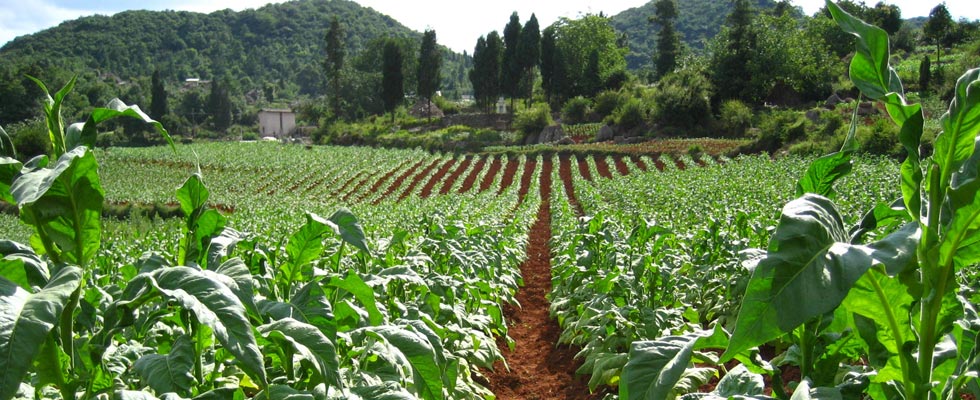
THE rebound of the tobacco industry in recent years has ignited debate on the future of the cash crop as the state of the entire agricultural sector, once the mainstay of the economy, remains dire.
Report by Business Reporter
The tobacco industry is now the country’s second largest foreign currency earner after mining with more subsistent farmers switching to the crop to eke out a living.
Critics blame the chaotic land reform carried at the turn of the millennium for triggering the collapse of the agricultural sector. The growth of the tobacco sector may threaten food security.
Nearly 91 280 farmers registered to grow tobacco in 2013 with 55 802 registering for the next season. Of these, 17 003 will be growing the crop for the first time.
The poor performance of the agricultural sector, experts say, has also had ripple effects on downstream industries such as the manufacturing sector, which is confronted by massive company closures.
The tobacco marketing season closed early this month, generating $590 million from the sale of 160 million kg against a target of 170 million kg. Despite slightly missing the set target, farmer organisations believe that the sector may continue to trend upwards driven by conducive environment and strong demand from Asia.
Official statitics show that although South Africa has overtaken China as the country’s main importer of the golden leaf, the world’s second largest economy bought the crop at an average of $8,13 per kg compared with South Africa’s $2,96.
- Chamisa under fire over US$120K donation
- Mavhunga puts DeMbare into Chibuku quarterfinals
- Pension funds bet on Cabora Bassa oilfields
- Councils defy govt fire tender directive
Keep Reading
The golden leaf was being sold at an average of $3,70 per kg at the three tobacco auction floors in the country, Tobacco Sales Floor, Boka Auction Floors and Premier Auction Floors.
The Zimbabwe Commercial Farmers’ Union (ZCFU), an organisation mainly representing farmers resettled under the agrarian reform, says the high cost of production, lack of irrigation infrastructure and climate change may in future affect tobacco output although the organisation remains optimistic that the upward trend will continue.
Turning to the World Health Organisation Framework Convention on Tobacco Control (FCTC) which could result in a cut in tobacco output, the ZCFU said there was no immediate threat to the local industry.
“Tobbacco has improved livelihoods of farmers. As farmers, we will lobby against any ban that threatens the sector. The future of tobacco farming in Zimbabwe is great and we will continue to outstrip the current output,” ZCFU president Wonder Chabikwa said.
He said in the absence of long-term financing in the economy, government, should subsidise the sector.
The Zimbabwe Tobacco Association — another farmer organisation representing white commercial farmers who lost vast tracts of land during the land reform programme, contends that strong demand from China may continue to drive the sector.
“With Zimbabwe the strong demand from Asian markets, particularly China, there will be very little impact of the current FCTC anti-tobacco legislations. However, we need to ensure that our growers, value addition industries, products and key markets are protected hence our need to be a participating party at future FCTC conventions,” said ZTA president Rodney Ambrose.
“Zimbabwe is a primary producer and much-sought-after source of flavour tobacco and with the projected increased demand in tobacco products outside European markets, the future is very bright. Our objective is to achieve 200 million kilogrammes of flavour, bodied tobacco for key international markets in the next two to three seasons.”
He said the new government which comes after the July 31 election should ensure that land becomes a bankable security for all farmers.
Tobacco Industry Marketing Board chief executive officer Andrew Matibiri says future growth of the industry needed to be anchored on the availability of capital.
“More and more farmers are taking an interest in growing the crop, or increasing their production scales because of the straightforward marketing systems that have been developed for tobacco. Most growers are fully aware of the growing requirements for tobacco, but are unable to fully meet the crop’s exacting demands,” said Matibiri.











